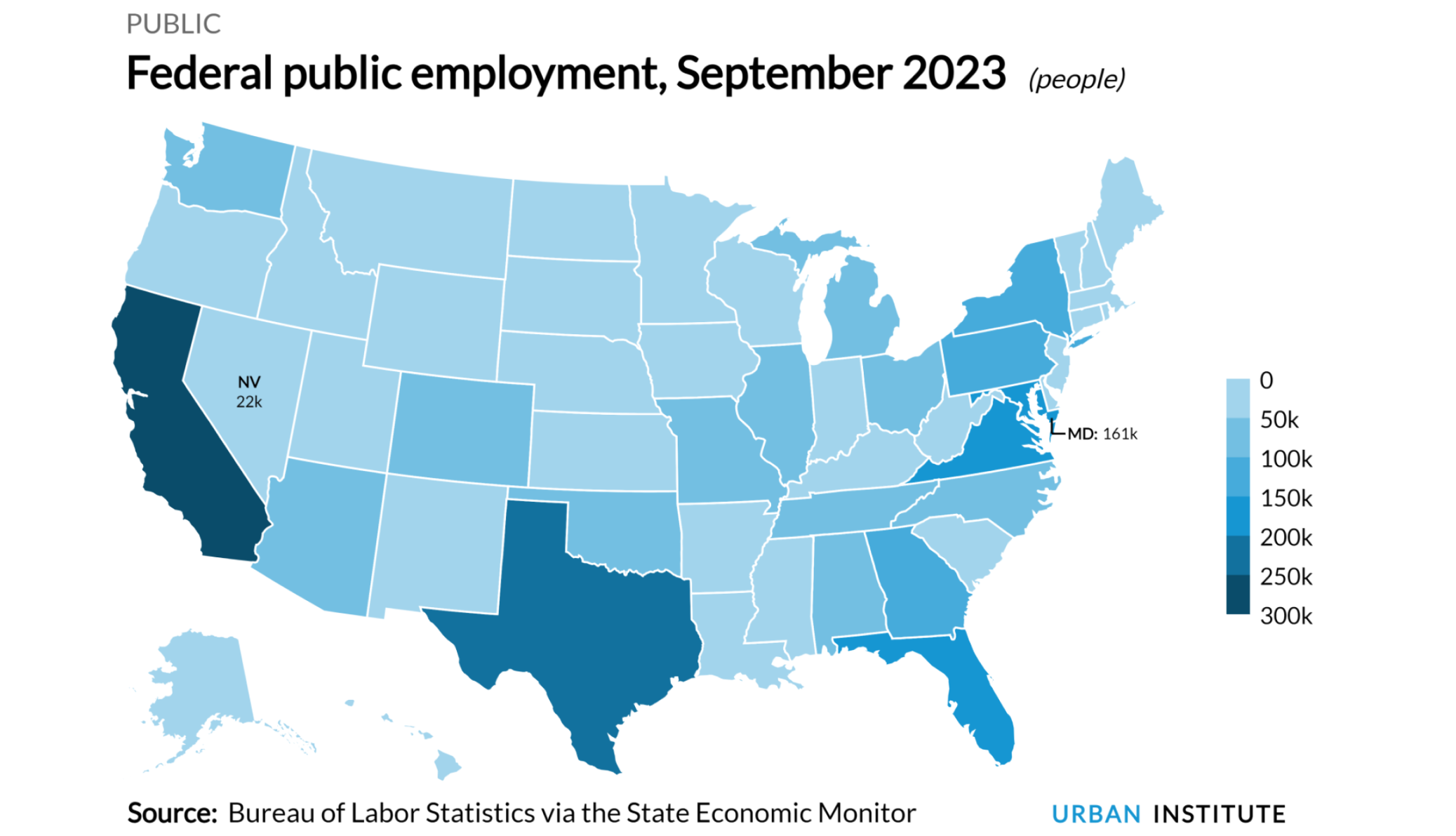With Congress unable to secure an agreement on border security, Ukraine aid, and other issues, the federal government is headed toward a shutdown starting the morning of Nov 17. Conversations about who is affected by shutdowns usually focus on Washington, DC, but available data shows impacts could be shared across all fifty states.
The most recent government shutdown, which started in 2018, reduced economic output by $11 billion (0.1% of GDP in the fourth quarter of 2018 and 0.2% in the first quarter of 2019), including $3 billion (0.02% of GDP) that will never be recovered. This five-week shutdown also delayed services that people and businesses depend on, like federal permits and loans.
Federal government shutdowns are disruptive and costly. Nearly 3 million federal employees won’t get paid until the federal government resumes normal operations. And these employees don’t just live in and around the nation’s capital.
Data from the Bureau of Labor Statistics shows that the share of workers employed by the federal government is highest in DC, at 24.7 percent. Next is Maryland, at 5.8 percent. Hawaii (5.6 percent) and Alaska (4.8 percent) follow, with Virginia (4.5 percent) rounding out the top five.
But plain numbers show the impact on people’s lives more clearly. The number of federal workers is highest in California (249,600) and Texas (220,900). Florida (156,200) has roughly as many federal workers as Maryland (160,000). Employees across the country would feel the consequences of this political gridlock.

A shutdown wouldn’t only effect people directly employed by the government, but also a large pool of contractors. It is estimated that there are three times as many federal contractors as there are federal employees. In a shutdown, these contractors must either stop working or risk going without pay. The contracting firm can provide back-pay, but it is not necessarily reimbursed by the government.
As with federal employment, federal contractors are spread across the country. In fiscal year 2021, $72 billion in federal contracts were awarded in Virginia, $55 billion in Texas, and $52 billion in California, per the GSA.
Not only are federal workers and contract employees affected, but military personnel will also not be paid until the shutdown ends. According to the Department of Defense, about two million active duty and civilian military employees are at risk, which the White House says will interfere with national security.
It’s too soon to know the effect of this government shutdown, but federal workers and contractors will feel the pinch, as could state and local governments running federal programs like SNAP and WIC that may not receive funding during the shutdown. And despite some claims to the contrary, every state would feel some impact.




